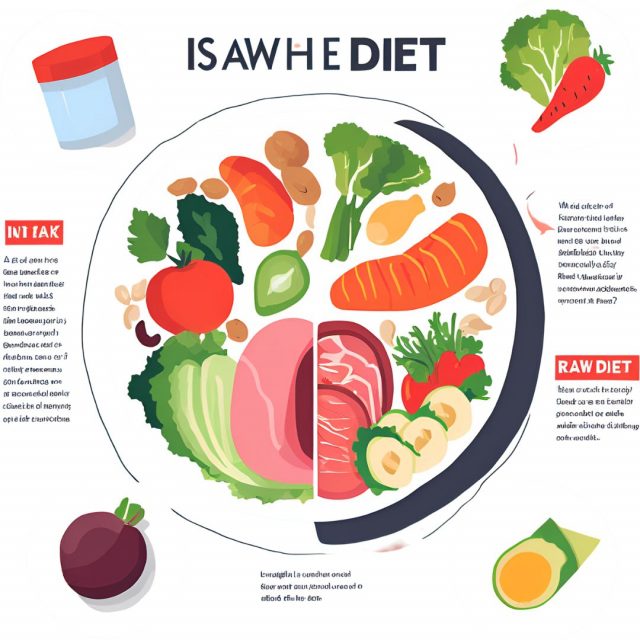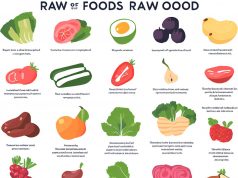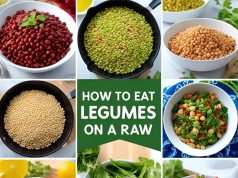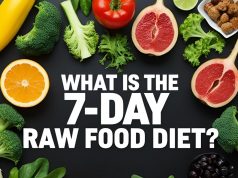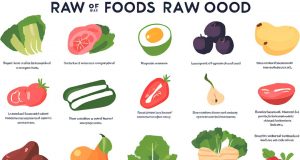Is a raw food diet really healthy? Explore the benefits, risks, and facts behind raw eating to help you decide if this lifestyle is right for you.
Is a Raw Diet Healthy? Let’s Break It Down
The raw food diet is gaining popularity among wellness enthusiasts, health coaches, and celebrities alike. But is eating raw really healthier than eating cooked meals? In this article, we’ll explore the science, pros, and potential downsides of a raw food diet to help you make an informed decision.
What Is a Raw Food Diet?
A raw food diet, also known as raw veganism or raw foodism, is centered around eating unprocessed and uncooked foods—usually plant-based. Most raw foodists avoid cooking food above 104–118°F (40–48°C) to preserve natural enzymes and nutrients.
Common staples of a raw diet include:
Fresh fruits and vegetables
Nuts and seeds
Sprouted grains and legumes
Cold-pressed oils
Fermented foods like raw sauerkraut
Dehydrated snacks like raw crackers and fruit leathers
Health Benefits of a Raw Food Diet
1. Rich in Nutrients
A raw diet is naturally high in fiber, vitamins, minerals, and antioxidants. Because the foods are unprocessed, they retain more water-soluble nutrients like vitamin C and folate.
2. Supports Digestive Health
Thanks to its high fiber content and natural enzymes, raw food can improve digestion and support a healthy gut microbiome.
3. Weight Loss Potential
Most raw food diets are naturally lower in calories and unhealthy fats, which can lead to weight loss without counting calories.
4. Better Hydration
Fruits and vegetables have high water content, keeping the body hydrated while aiding in detoxification.
5. Improved Skin and Energy
Many people report clearer skin, better sleep, and enhanced energy levels after switching to raw foods.
Potential Risks and Drawbacks
While a raw diet has its perks, it’s not without potential downsides—especially if not planned correctly.
1. Nutritional Deficiencies
A strict raw vegan diet may lack essential nutrients such as:
Vitamin B12
Iron
Calcium
Omega-3 fatty acids
Vitamin D
Supplementation or careful food planning is often necessary.
2. Hard to Digest for Some
Certain raw vegetables (like broccoli or kale) can be hard to digest for those with sensitive stomachs, especially when eaten in large quantities.
3. Food Safety Concerns
Raw sprouts, unpasteurized juices, and raw dairy (if consumed) can pose a risk of foodborne illness if not handled properly.
4. May Not Be Sustainable Long-Term
The raw food diet can be restrictive and socially isolating. Dining out or sharing meals with others can become difficult, which might impact adherence over time.
Is a Raw Diet Right for You?
It depends on your personal health goals, lifestyle, and how well you plan your meals. Some people thrive on a high-raw diet, while others find more balance by combining raw foods with lightly cooked options.
If you’re considering going raw:
Start gradually by adding more raw meals into your routine
Consult a registered dietitian or nutritionist
Consider a high-raw approach—where 70–80% of your food is raw, and the rest is cooked whole foods
Final Thoughts: Is a Raw Diet Healthy?
Yes—a raw food diet can be healthy when done thoughtfully and balanced with your body’s needs. It’s packed with nutrients and can offer health benefits like better digestion, clearer skin, and weight loss. However, it’s important to plan carefully to avoid deficiencies and stay energized in the long run.

